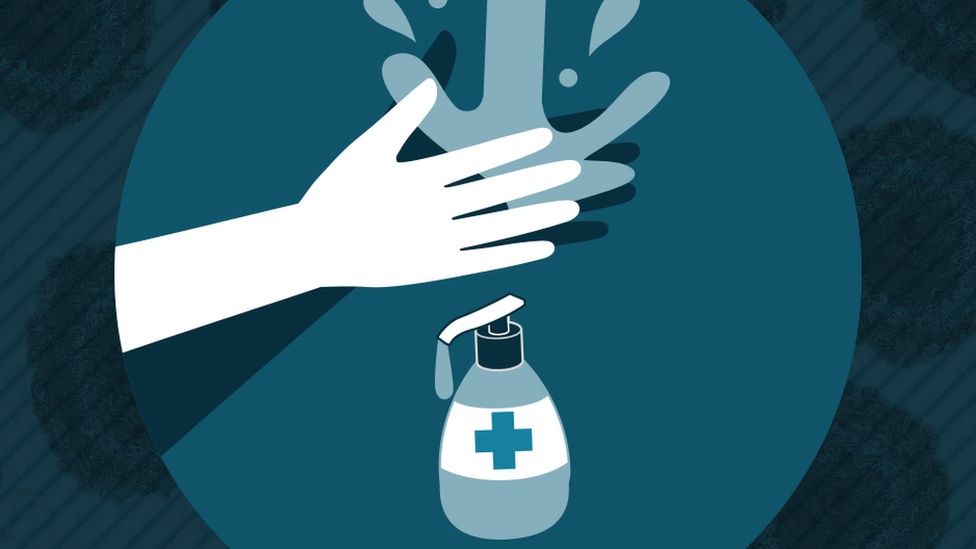Coronavirus: 'Wash hands at least six times a day'
- Published
The University of Westminster's Dr Adele McCormick demonstrates how to wash your hands well in 20 seconds
Washing your hands at least six to 10 times a day makes catching infections such as coronavirus much less likely, a study by UK researchers suggests.
It looked at data, from 2006-09, on viruses structurally very similar to the deadly pandemic strain circulating now.
Coronaviruses are a family of virus that most usually cause mild illness such as the common cold.
And all of them, including the pandemic one, can be killed by soap and water.
Each winter the Medical Research Council asks people in England whether they have flu-like respiratory symptoms and tests those who do for common cold coronavirus infections.
And the study, published in Wellcome Open Research and awaiting peer review, found the 1,663 participants were much less likely to be infected if they washed their hands at least six times a day.
Hand-washing more than 10 times a day did not appear to cut the risk of infection further, however.

RISK AT WORK: How exposed is your job?
SCHOOLS: When will children be returning?
EXERCISE: What are the guidelines on getting out?
THE R NUMBER: What it means and why it matters
LOOK-UP TOOL: How many cases in your area?
GLOBAL SPREAD: Tracking the pandemic
RECOVERY: How long does it take to get better?
A SIMPLE GUIDE: What are the symptoms?

Study author Dr Sarah Beale, from University College London, said: "Good hand hygiene should be practised at all times regardless of whether you show symptoms or not.
"This will help protect yourself and prevent unwittingly spreading the virus to others around you."
A Public Health England official said: "Regular hand-washing for at least 20 seconds is one of the best ways of stopping the spread of coronavirus, particularly after you blow your nose, sneeze or cough, as well as before eating or cooking.
"Also, it's a good idea to get into the habit after you've been out in public places or on transport."
- Published5 March 2020
